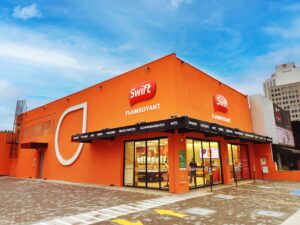
JBS, a prominent global food company, has revealed its plan to furnish Swift stores with electricity generated by biogas generators, in collaboration with Âmbar Energia, an energy solutions firm under J&F Investimentos. This strategic move will extend to ten Swift stores situated in São Paulo, augmenting the 150 existing establishments already benefiting from solar energy.
The energy supply will be harnessed through the utilization of biodigesters, specially designed to capture and process methane gas within the company’s production units. This innovation capitalizes on the biogas created by JBS’s Friboi units, a notable beef brand in Brazil. An investment of R$80 million (€14.6 million) facilitated the implementation of biodigesters across nine units in multiple states, such as São Paulo, Mato Grosso do Sul, Mato Grosso, Goiás, Minas Gerais, and Rondônia. This initiative results in the generation of approximately 65.1 cubic meters of energy daily.
Gilberto Xandó, President of JBS Brazil, elaborated, “The initial phase of this endeavor encompasses the nine largest Friboi units, anticipated to reduce the business’s scope 24 emissions by 6%. This reduction equates to a 1.4% decline in scope 5 emissions across all JBS activities in Brazil.” Xandó further highlighted the versatility of biogas, as it can be employed not only to power Swift stores but also to generate steam for unit boilers, fuel the JBS carrier fleet as an alternative to diesel, and even produce green hydrogen.
Swift intends to leverage the biogas output from Friboi’s Andradina unit, located within São Paulo’s interior. Amber has installed generators at the plant, poised to consume around 600,2023 cubic meters of biogas daily. This volume is substantial, sufficient to power approximately 101 homes. These generators are slated to commence commercial operations by December 3rd of this year.
The energy yielded from this innovative process will be accessible to Swift stores across various locations, including Atibaia, Votuporanga, Leme, Vila Caiçara, Arujá, Limeira, Itanhaém, Peruíbe, Ubatuba, and Mongaguá. This collaborative endeavor between JBS and Âmbar Energia not only signifies a noteworthy advancement in sustainable energy practices but also underscores a proactive approach toward reducing carbon footprints within the food industry.


